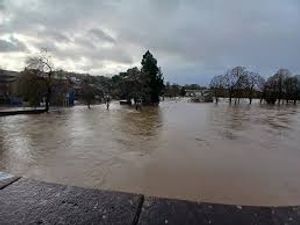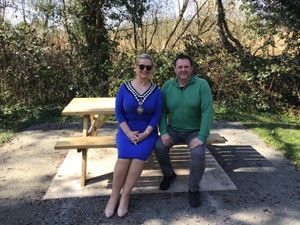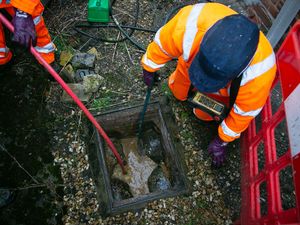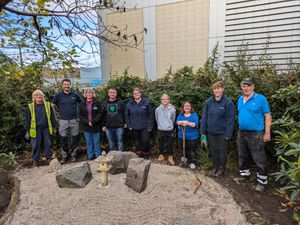Green belt land in Shropshire could be used to store electricity created by wind and solar energy
More than 1.8 acres of land in Shropshire could be used to store electricity created by wind and solar energy.
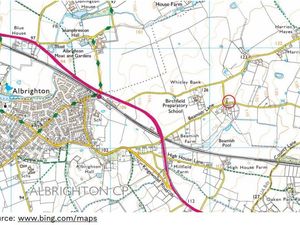
A piece of green belt land north of Albrighton substation, in Beamish Lane, Albrighton, has been identified as the best local site for the battery energy storage system (BESS).
The BESS would have the ability to store 7 Megawatts of energy. It is promoted as the solution to the problem of the wind not blowing and the sun not shining all the time, which is a criticism of renewable energy technologies.
Shrewsbury planning agent Berrys has told Shropshire Council, on behalf of applicant Hydrock that battery storage technologies are "essential to speeding up the replacement of fossil fuels with renewable energy.
"Battery storage systems will play an increasingly pivotal role between green energy supplies and responding to electricity demands."
Battery storage, or battery energy storage systems are devices that enable energy from renewables, like solar and wind, to be stored and then released when consumers need power most.
The agent adds that: "Battery energy storage systems are considerably more advanced than the batteries kept in kitchen drawers or insert in TV remotes.
"A battery storage system can be charged by electricity generated from renewable energy, like wind and solar power.
"Intelligent battery software uses algorithms to coordinate energy production and computerised control systems are used to decide when to keep the energy to provide reserves or release it to the grid. Energy is released from the battery storage system during times of peak demand, keeping costs down and electricity flowing."
The applicants say they have looked for other potential sites but need something close to a transformer. They say there is a shortage of those in the county, making this green belt spot the most appropriate.
Hydrock are a British-owned integrated engineering design, energy, and sustainability consultancy.
If approved the site would contain four battery containers each measuring approximately 12.2 metres in length, 2.4 metres in width, and 2.9 metres in height.
"The containers will be very similar in appearance to standard shipping containers," they say.
There would also be other power conversion containers on the site, each measuring approximately 3.7 metres in length, 2.2 metres in width, and 2.2 metres in height. There would also be two buildings approximately 11 metres in length, 2.4 metres in width, rising to a maximum 2.5 metres in height.
An on-site substation would measure approximately 3 metres in length and width, rising to a peak height of 3.2 metres.
Construction is expected to take 3-6 months, with a new access off Beamish Lane.
The BESS will require "infrequent visits for the purposes of maintenance. The facility would be unmanned, being remotely operated, and monitored."
Although the planning agents admit that elements of many renewable energy projects will comprise inappropriate development in the green belt.
But they add that the wider environmental benefits associated with increased production of energy from renewable sources counts as a very special circumstance in its favour.
"Therefore, the environmental benefits of the proposal and the fact that the impacts can be made acceptable, should be sufficient to outweigh the harm to the Green Belt," they say.
They conclude that "accordingly, this proposal represents sustainable development and, as such, this planning application should be approved without delay."
A public consultation on the plan is underway and can be commented on here https://pa.shropshire.gov.uk/online-applications/applicationDetails.do?activeTab=documents&keyVal=RKZRMBTDK8Q00
The application's reference number is 22/05043/FUL

